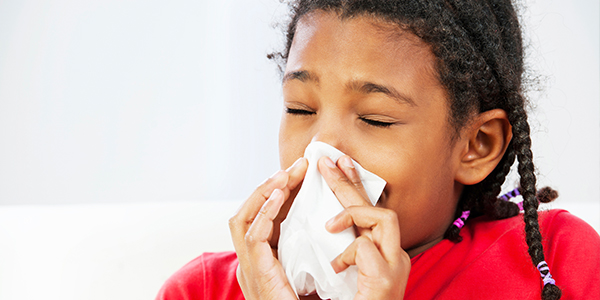For parents of young children, colds are a fact of life. Typically, kids have between seven and 10 colds (viral respiratory infections) a year for the first few years of life, especially children who attend daycare or preschool.
The good news is that colds are rarely harmful and most of them resolve within two weeks. Usually, colds start with a fever and often a sore throat. This may last one to three days and is followed by a runny nose, congestion and coughing. These symptoms worsen during the first week and then gradually improve over the second week.










